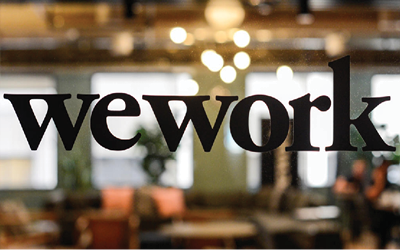The Yale Endowment Fund was an early mover toward big allocations to private equity, which accounted for 40% of the fund’s assets last year. After returning more than 11% per year for the past 20 years, it’s made David Swenson a rock star among portfolio managers and started a movement that’s seen private equity’s share of giant investment funds go from barely being on the radar 20-odd years ago to now being a meaningful and indispensable portion.
Australia’s own Future Fund has 16% of its $160 billion in private equity, most of our big industry super funds include some weighting to it, and over the past five years there’s been an increasing number of vehicles offering private equity exposure to mum and dad investors that have proved very popular. And why wouldn’t they: as an asset class, private equity’s delivered returns that have averaged about 4% per year more than global share markets over the past 10 years or so and usually without the big swings share markets can suffer from. But the recent WeWork debacle and the dismal performance of Uber since it listed have shone a light on some of the risks in the space, risks that all investors need to be mindful of.
Private equity is investing in assets that sit outside public markets, and it can range from backing businesses in the earliest stages of starting up, right through to buying and selling long-established businesses or assets. The asset can be in private hands to begin with, or a private equity firm might buy a company listed on a share market and take it private.
One huge advantage of private equity is that if they’re transacting on a private company there are no insider trading laws, which is fair enough, if you were buying an asset from your neighbour there’s no reason the general public needs to know all the details. That means when a private equity firm does due diligence on buying a company they can insist on getting access to every detail available, information that a fund manager buying shares in a listed company would go to jail for.
Returns have also been less volatile than share markets, which is because the funds are not traded on a public market. When an asset only gets valued once or twice a year, it’s unlikely you’ll see a lot of ups and downs in the price. The downside of that is private equity is usually an illiquid asset, meaning you can’t buy and sell it whenever you want. Instead you’re typically locked into a fund for anything up to five to seven years, and in return you hope to harvest what’s called the “illiquidity premium”.
Because of that illiquidity, returns from private equity can be totally unrelated to share markets, which can be very handy when markets correct and you’ve got a chunk of your portfolio that barely moves. It’s close to the holy grail of “equity-like returns with bond-like volatility” that so many investors dream about.
With the huge rise in popularity of private equity as an asset class for institutional investors over the past 10 years, there’s likewise been a huge rise in the amount of money chasing private assets. It’s estimated there’s US$5 trillion locked away in private equity funds already, and Prequin, an alternative asset analyst, found more than half the large pension funds and family offices it surveyed intended to increase their allocation.
Of that US$5 trillion, US$2 trillion is ‘dry powder’ that hasn’t been invested yet and the intense competition for assets has seen the multiples paid rise by 20% over the past eight years. After the GFC, US regulators guided private equity firms to paying no more than six times ‘EBITDA’ (a proxy measure for how much cash a business spits out), but recently almost 40% of deals have been done at more than seven times.
While that may not sound like much, it’s a 17% rise and the way a lot of firms are looking to maintain strong returns on higher priced acquisitions is by jacking up the debt, which has seen average debt multiples increase 20% over the past few years. In just the last few years, once household names like Debenhams, Toys R Us and Pizza Express, have collapsed under the weight of the debt piled on by their private equity owners.
In January of this year Japan’s Softbank, one of the biggest private equity firms in the world, put money into WeWork at a valuation of US$47 billion. In the build up to listing the company in the US, which is the way many private equity firms cash in to realise their profit, Goldman Sachs and J.P.Morgan valued it at US$50-60 billion, but after closer scrutiny by regulators and fund managers the deal was pulled and the valuation is now estimated at more like US$10 billion.
That came after another private equity darling, Uber, was valued last year as highly as US$120 billion, then listed at US$80 billion, and is now US$50 billion. Likewise, its competitor, Lyft, has seen its valuation fall by 40% since it listed six months ago.
Having an exposure to private equity in your portfolio can be great for returns and can reduce its volatility, but like anything, you really need to know what you’re buying first. There are some companies that run like a Swiss watch, others that grab headlines for what can be the wrong reasons, and others that are clearly trying to jump on the bandwagon and raise money from unsuspecting mums and dads. The low interest rate environment is a double tailwind for private equity: lower yields are encouraging investors to look elsewhere for a return boost, and debt is cheap. Just make sure you don’t get blown off course.





